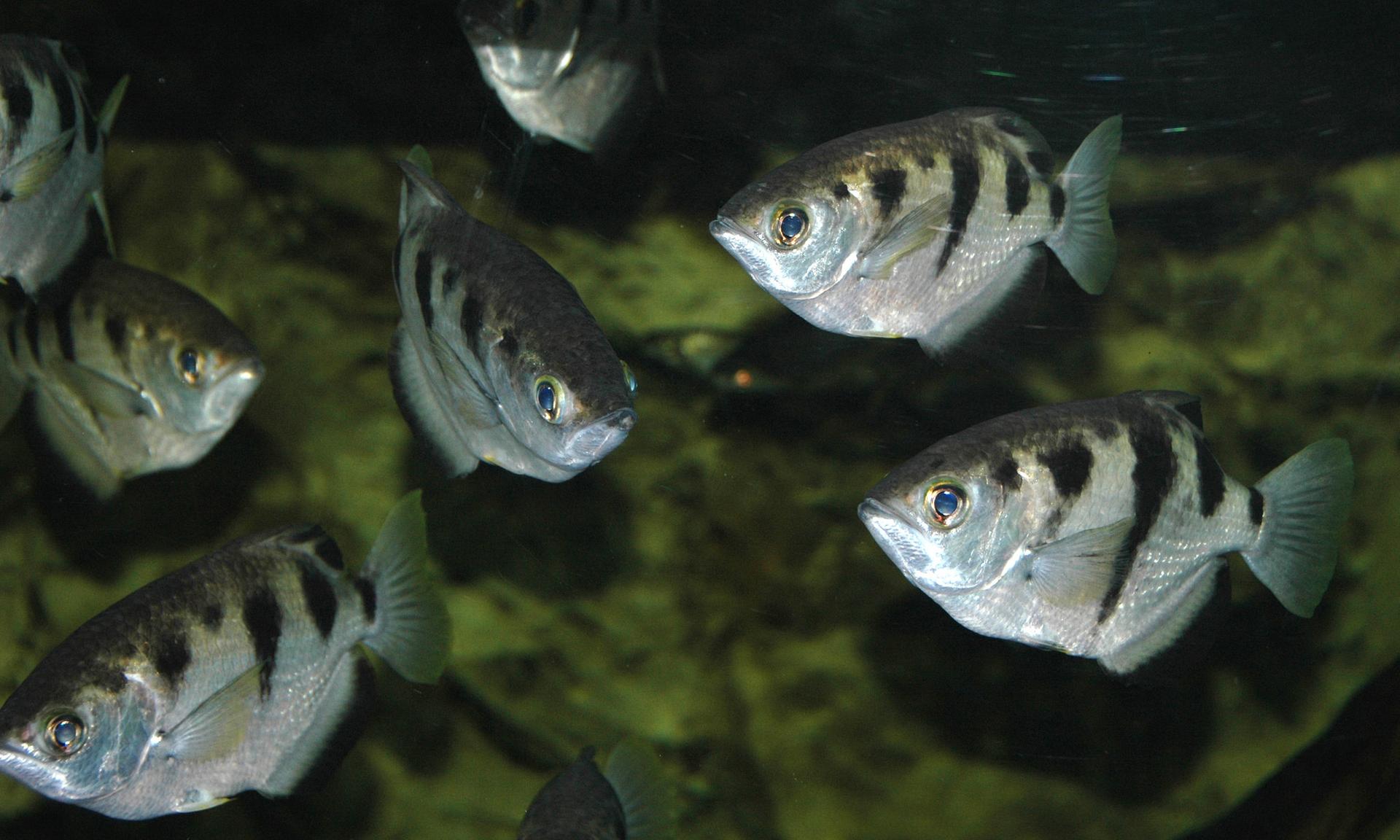Spitting image: clever fish can recognize human faces
The mostly brackish-water archerfish is famous for its ability to shoot narrow streams of water from its mouth. They do this to knock down potential prey (typically insects) from above the air-water interface.
A tropical fish can tell one human face from another despite lacking a part of the brain that animals considered much smarter use for this task, scientists said Tuesday.
This unsuspected ability was demonstrated in experiments with archerfish, a tropical species best known for spitting jets of water to shoot prey out of the air.
Instead of aiming at bugs, the sharpshooter fish were taught to spit at pictures of human faces displayed on a computer monitor outside their aquarium.
The fish were first introduced to two faces, and taught to spit at one of them in exchange for a food reward.
The researchers then tested whether the fish would recognize, and spit at, the face they had learned from among 44 new ones.
And they were right more than 80 percent of the time, the team found.
"Even when we did this with faces that were potentially more difficult because they were in black and white and the head shape was standardised, the fish were still capable of finding the face they were trained to recognise," said study co-author Cait Newport of the Oxford University's department of zoology.
Distinguishing between human faces is a surprisingly difficult task, she said.
As we all have two eyes above a nose and mouth, doing so depends on identifying sometimes subtle differences.
"It has been hypothesized that this task is so difficult that it can only be accomplished by primates, which have a large and complex brain," said Newport, whose study was published in the journal Scientific Reports.
But the archerfish were able to do this despite not having a neocortex, the most recently evolved part of the brain. In humans, the neocortex governs sensory perception and language.
Birds — recently discovered to also have a neocortex — are likewise able be recognize human faces.
"Fish have a simpler brain than humans and entirely lack the section of the brain that humans use for recognising faces," Newport said.
"Despite this, many fish demonstrate impressive visual behaviors and therefore make the perfect subjects to test whether simple brains can complete complicated tasks."
Every day, reporters and producers at The World are hard at work bringing you human-centered news from across the globe. But we can’t do it without you. We need your support to ensure we can continue this work for another year.
Make a gift today, and you’ll help us unlock a matching gift of $67,000!
